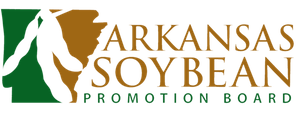Improving Soybean Yield Potential with Smart Applications
The Arkansas Soybean Promotion Board invests checkoff funds to improve the sustainability and profitability of the soybean industry in Arkansas. The board’s research investment includes projects conducted by Dr. Gus Lorenz, an integrated pest management professional and entomologist with the University of Arkansas’s Division of Agriculture. Dr. Lorenz and his team conduct checkoff-funded research with the goal of maximizing yield potential for growers and helping increase their bottom line.
Dr. Lorenz’s philosophy is for growers to make applications when a pest reaches a certain threshold rather than applying in anticipation of a problem. Smart applications, or holding off until there’s a need, rather than making an automatic application can save growers money. Dr. Lorenz recommends growers look at the return-on-investment (ROI) before making the application.
Over the last three years, Lorenz and his team visited grower fields from Northeast to Southeast Arkansas, making applications on their fields – the focus was the bottom line. Dr. Lorenz’s team made automatic applications of Prevathon or Besiege, and those applications did not cause an increase in yield. The research did reflect some yield increases with automatic fungicide applications.
After three years of research, Dr. Lorenz’s team found automatic applications of insecticides do not increase yield. In fact, automatic applications may have an impact on long-term resistance issues, so it is best not to apply based on crop phenology or recommended schedule.
In agreement with agronomists, Lorenz said one of the keys to making high yields is planting early because it helps growers avoid many of the pest complexes encountered over the years, particularly worms or stink bugs that hit late in the season.
“I would say that 75 percent of our insecticide applications are made on 25 to 30 percent of our bean crop because those are late-planted beans,” Lorenz said. “There may be some potential to that approach with automatic applications on later beans but certainly not on beans where we’re trying to maximize our yields and planting early.”
As planting season nears and you’re spending more time on the go, catch the Arkansas Soybean Promotion Board’s free podcast series. You’ll find a podcast on this topic and lots more checkoff-funded research.
To learn more about the Arkansas Soybean Promotion Board’s checkoff-funded research, watch the full Field to Film: Featured Research series here.
